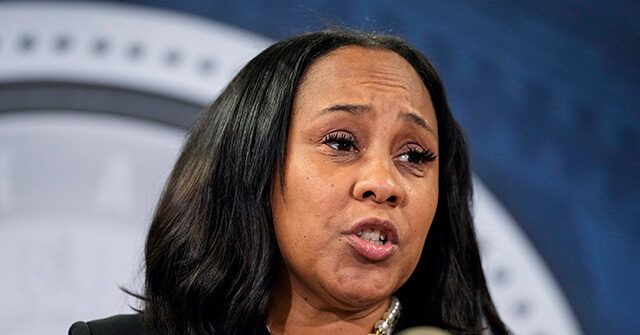Fulton County District Attorney Fani Willis’s prosecution of former President Donald Trump for alleged election interference has come under scrutiny, particularly following revelations from a deposition given by her former top prosecutor, Nathan Wade. Testifying before the House Judiciary Committee, Wade disclosed that Willis was actively planning the prosecution before she officially assumed her office in January 2021. He explained that he was contacted by Willis soon after the 2020 election, prior to her taking office, to lead a search committee for a special prosecutor aimed at targeting Trump. This testimony raises concerns about the potential political motivations behind the case, with Trump and his supporters arguing that it is a politically motivated attack to undermine his 2024 presidential campaign.
Wade’s deposition also revealed personal entanglements, including an affair between him and Willis that began after he was recruited to manage the prosecution. After signing a contract with the Fulton County District Attorney’s Office, he filed for divorce, which reflects a tumultuous personal life overlapping with his official responsibilities. Ultimately, Wade resigned from the Trump case in March 2024 due to an order from Judge Scott McAfee, who noted the “appearance of impropriety” stemming from their relationship, even if no actual conflict was found. This situation has led critics to question the integrity of the prosecution and its implications in a highly charged political environment.
Adding to the intrigue surrounding the case, Wade’s testimony hinted at a potential connection between the prosecution and high-ranking officials within the Biden administration. He acknowledged attending multiple meetings with personnel from the Biden-Harris White House, yet he could not recall crucial details, including whether these meetings took place in person or via teleconference. One particular meeting on November 18, 2022, coincided with significant developments related to the prosecution of Trump, including the appointment of Special Counsel Jack Smith by Attorney General Merrick Garland. This raises further questions about the level of collaboration between local legal efforts and federal interests in ensuring that Trump does not regain power.
Wade’s limited recollection during his deposition was striking; he often responded with phrases like “I can’t recall” or “I don’t know,” totaling around 58 such instances. This lack of detail raises doubts about his competency in managing a prosecution of this magnitude. Additionally, his role as a special prosecutor was critiqued for being filled by someone without relevant experience—he had previously worked on contractual disputes and family law rather than criminal law, indicating a significant gap in his qualifications. Despite these shortcomings, Wade confirmed that no one oversaw his work in his role, which was alarming for those concerned about the prosecution’s integrity.
The connections Wade confirmed to the controversial January 6th Committee underscore the case’s political dimensions. His discussions with individuals associated with the committee, despite his inability to recall specific details, indicated a network of collaboration that critics argue was politically driven. This relationship and the legal framework surrounding the committee have drawn skepticism, suggesting that the prosecution could be influenced by partisan motivations rather than purely legal considerations. The implications of coordinated efforts with a politically charged committee may bolster claims from Trump’s camp regarding the prosecution being a tool of political warfare.
In light of Wade’s deposition, there are calls from various legal experts and politicians to reassess the nature of the prosecution led by Willis. Concerns about political interference and questionable ethics loom large, especially since Wade’s limited experience and questionable memory cast doubt over the prosecutorial process. The House Judiciary Committee’s efforts to gather information have also been impeded by Willis’s instructions to Wade to refrain from providing comprehensive details about the case, marking a significant obstruction to transparency. The ongoing complexities surrounding the prosecution of Trump reveal a contentious intersection of law and politics, stirring further debate on the overarching themes of fairness, legality, and the politicization of the judicial process.

